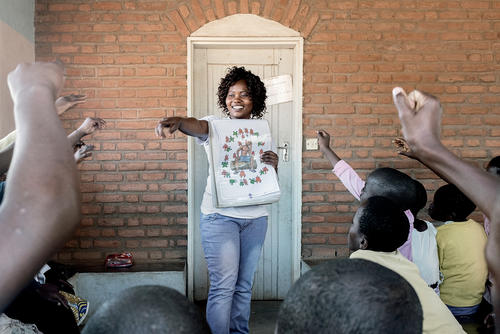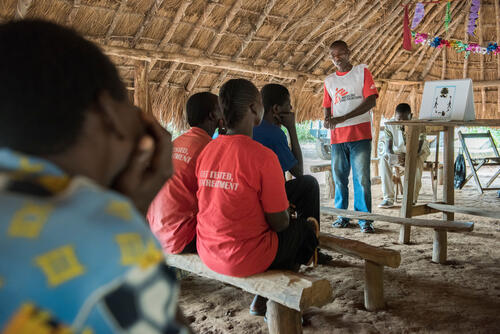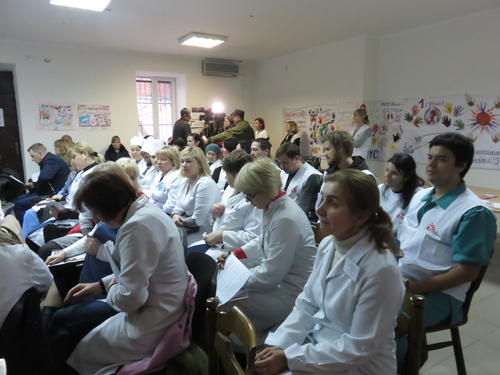- This week, researchers, policy makers, clinicians and activists involved in the HIV response will attend ICASA2017, in Abidjan, Côte d'Ivoire.
- Being at the heart of West and Central Africa, there is no better place for me and my medical colleagues at MSF to call out some of the main reasons preventing millions of people in the region from getting lifesaving HIV treatment. These must be addressed for this year’s theme of ‘delivering differently’ to be realised. Otherwise, we will simply not reach the four million people in the region still undiagnosed and untreated for the disease.
Each person with AIDS we see arriving in our waiting and emergency rooms in Democratic Republic of Congo (DRC), Guinea and Central African Republic (CAR) tells a story of terrible failure: the failure of the health system to deliver life-saving antiretrovirals (ARVs) in time and without interruption.
In the West and Central African region, by the end of 2016, only 42 per cent of people living with HIV had access to testing, 35 per cent of people diagnosed were receiving lifesaving antiretrovirals, and only 25 per cent were ‘virally suppressed’. In an era of ‘test and treat all’, people are dying of AIDS. We increasingly see people who had already been on treatment, and stopped. When they come back to care, they will likely be resistant to their treatment. We are failing our patients if we do not provide them with efficient, timely treatment. At the end of the day we are first accountable to those we provide medical care for, not only governments or donors.
A staggering range of obstacles still stands between people living with HIV and lifesaving treatment, including pervasive stigma, legal and policy blockages, and a reluctance to include civil society and communities in improving and expanding the HIV response. Ongoing conflict in countries like CAR or parts of DRC adds further complexity.
Yet by far the most obstructive are recurrent supply issues and stock-outs of HIV commodities and the high costs faced by service users, as are dwindling levels of international funding which stand in stark contrast to political commitments made to boost the HIV response in West and Central Africa.
In DRC for instance, our staff regularly witness the impact of stock outs and shortages of drugs and diagnostics. This implies that people can’t be tested or started on treatment. Those already on treatment face the risk of developing opportunistic infections or viral resistance, which greatly reduces their chances of survival.
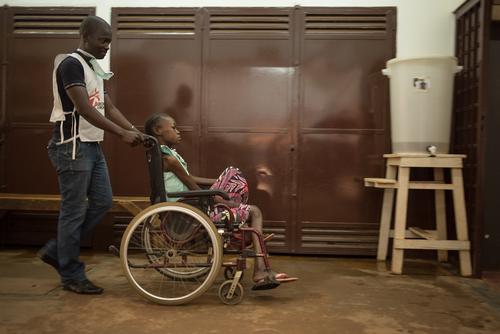
Many supply systems of West and Central Africa are neither flexible nor reactive to the demands of people living with HIV. Supplies frequently remain stuck at central distribution points, never actually reaching those in need. Without sufficient and regular supplies, organising longer drug refills like the R6M model being piloted in Guinea will not be possible.
User fees should also be eliminated and alternatives found to prevent service users from paying at the clinic. In several countries of the region, peoples are asked to pay for consultations, access to their files, or required tests and drugs against opportunistic infections. These payments either prevent people from starting ARVs or continuing their treatment. Those who – avoiding treatment due to high cost – fall ill and require hospital care face catastrophic expenses.
At MSF’s AIDS centre in Kinshasa, an MSF study (2016) among health staff, caregivers and people arriving with late stage AIDS, found that payments for care and drugs was a major factor behind why they developed very advanced stages of disease and delayed seeking care . Elsewhere, in Bangui, CAR, people living with HIV recently told MSF of being charged US$2.70 for HIV testing and $9 for a month’s supply of ARVs, a fortune to most. As a result, many remain untested or once on treatment, become defeated and give up on care.
The current lack of international funding will prevent sufficient resources for key interventions in the HIV response. Resources remain far below what the region needs to achieve the agreed targets by governments. A “substantial financing gap” (according to UNAIDS) today threatens the region’s progress and might even endanger positive results obtained.
Moreover, there is much uncertainty around whether the Global Fund’s next allocation will provide enough support the needed acceleration in West and Central Africa. It is expected that most countries’ allocation will either remain at the same level as the past three years or decrease. As a result, some countries fear they will have to lower initiation rates instead of the planned acceleration, which will have drastic consequences for people living with HIV to whom – I repeat – we are accountable to.
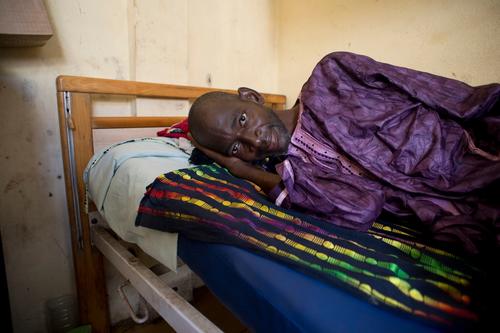
Funding and support for civil society and associations of people living with HIV is also under threat, in spite of the wide recognition of their pivotal role in the response. In West and Central Africa particularly, this will further undermine the key role of civil society in expanding HIV testing and treatment and monitoring services.
It’s clear that without rapidly and effectively tackling these challenges, the regional Emergency catch-up agreed in July 2017 will remain nothing more than a rallying call. More importantly, people won’t receive the treatment they need, and we will continue to keep the lives of millions in West and Central Africa desperately ‘out of focus’.
That’s why MSF is calling for the following:
- Innovative models of care and community mobilisation that allow people living with HIV to stay healthily on treatment must be implemented, particularly in conflict areas.
- Focused, differentiated packages of care to quickly identify and provide efficient, timely treatment for people with AIDS that helps bring them back into regular care.
- Rapid and effective support to last mile delivery of essential medical commodities, and longer term plans to build effective and efficient supply chains should be combined with short term measures to avoid low stock levels and stock-outs. All aspects of HIV and TB care must be made ‘free of charge’, as the financial burden on people affected and their families threatens access to, retention in and quality of care.
- Increased and sustained funding is urgently needed to implement key strategies to accelerate the HIV response in countries of West and Central Africa.
Médecins Sans Frontières (MSF) currently supports over 230,000 people living with HIV in 19 countries throughout Africa, Asia and Eastern Europe, with a focus on free quality care. This includes test and treat approaches, improved adherence support and differentiated models of care.



